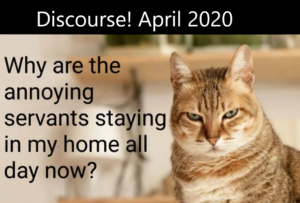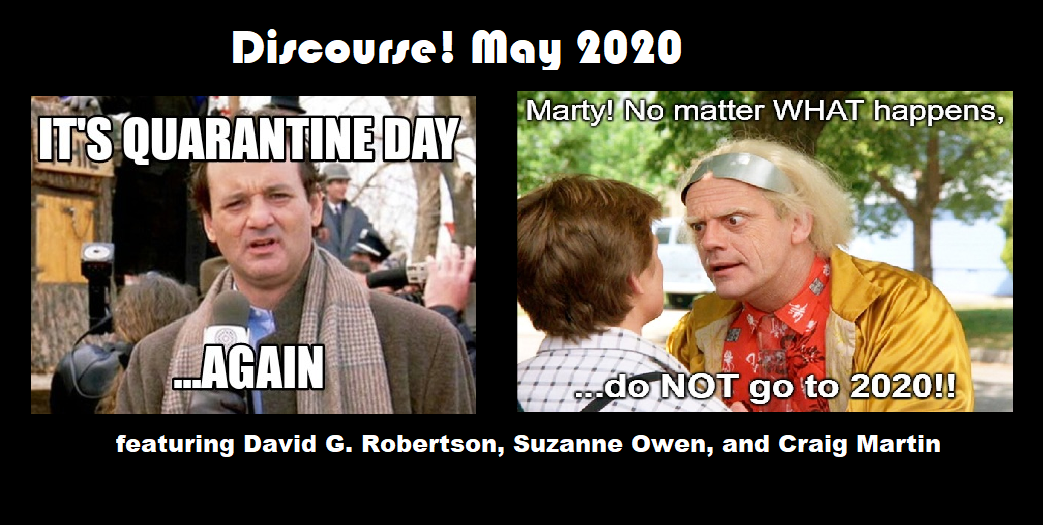Empty Signs in an Automatic Signalling System
This second interview with Timothy Fitzgerald covers his later work, from Discourse on Civility and Barbarity (2007) and Religion and Politics in International Relations: The Modern Myth (2011). In these works, thinking about the historical development of the category “religion” leads to consideration of other ‘modern’ categories which make up the colonial epistemé. If religion is deconstructed, where does that leave the other categories that use or rely on it? What happens to its common opposites like “the secular”, “science”, “liberalism” or even “politics”?
Fitzgerald argues that this mutually-dependent signalling system largely emerged in the late 17th century. As rhetorical terms expressing specific class interests and aspirations in concrete situations of power, this system of signals originated in the context of the ancient regimes and sacred Monarchies of Christian Europe. Since then, each category has been continually contested, with shifting and unstable meanings. Now they have become so capacious and universalised that they have no clear boundaries, and we cannot properly distinguish between them. Yet these ideas have, over time and through repetition, become normalised and neutralised such that they appear as common sense. Today they form the basic categories for the organisation of our institutions, including academia and universities.
Listen to the first part of David G. Robertson's interview with Timothy Fitzgerald on The Ideology of Religious Studies here: Episode 322 "The Problem with 'Religion' and Related Categories"
Discourse! March 2020 with Theo Wildcroft, Dan Gorman, & Vivian Asimos
In this month's episode of Discourse!, Theo Wildcroft, Dan Gorman and special emergency guest Vivian Asimos discuss the US Supreme Court's relationship to Christianity, how the Independent dealt with criticism of a review of a book critical of paganism, and religion, abuse and the idea of a ‘witch hunt’ in yoga and academia. Oh and something called coronavirus?
Links for items discussed in this episode:
- "With religion-related rulings on the horizon, U.S. Christians see Supreme Court favorably"
- https://www.pewresearch.org/fact-tank/2020/03/03/with-religion-related-rulings-on-the-horizon-u-s-christians-see-supreme-court-favorably/
- "Pagans express outrage and disappointment over 'book review'"
- https://wildhunt.org/2020/01/pagans-expresses-outrage-and-disappointment-over-book-review.html
- "Shielded for Decades, A Yoga Leader’s Alleged Sexual Abuse Finally Comes Under Fire"
- https://gen.medium.com/shielded-for-decades-a-yoga-leaders-alleged-sexual-abuse-finally-comes-under-fire-97b79ddf990b
- "Oxford dean accused of failing to report child sexual assault claim"
- https://www.theguardian.com/education/2020/mar/04/oxford-dean-accused-of-failing-to-report-child-sexual-assault-claim
- "Master of Deceit: How Yogi Bhajan Used Kundalini Yoga for Money, Sex and Power"
- https://gurumag.com/master-of-deceit-how-yogi-bhajan-used-kundalini-yoga-for-money-sex-and-power/
Source for Featured Image Screenshot of Rio's Christ the Redeemer with the flags of countries afflicted by Covid-19:
https://www.sentinelandenterprise.com/2020/03/20/embracing-the-grace-of-covid-19/
The Public Square and the Heart of Culture War
Norman Lear was a central figure in American television in the 1970s. His media productions like All in the Family were deeply activist, reflecting his ideas about what kinds of dialogue and reflection were needed to preserve American society in an era of sharp divisions over social and political issues that came to be called the Culture Wars. As a voice for progressivism and liberalism, Lear articulated a powerful vision of the public square where civility was the shared root for multicultural America. In this conversation, Dr. Benji Rolsky frames the public square as the central discursive space for mid 20th century liberals, one which not only gave them great social leverage but also limited their future strategic options to respond to the emergence of the religious right as a consolidated political block starting with the election of Ronald Reagan in 1980.
Challenging the Normative Stance of Aniconism in the Study of Judaism, Christianity, and Islam
In a co-edited volume, Figurations and Sensations of the Unseen in Judaism, Christianity, and Islam: Contested Desires, Birgit Meyer and Terje Stordalen bring together innovative perspectives on the prevalence of images in religious traditions often described as harboring aniconistic tendencies. Should we really see these traditions as “anti-image”? This episode charts some of the major moves taking place in the volume, especially the presumption of the normative stance of aniconism in the study of these traditions. What if we turn instead to the aesthetic regimes of the religious traditions in question by considering their shared habitus or the methods of "seeing"used by their members? Such a shift reveals the political nature of debates over images, and the power of iconoclasm. Referring to specific case studies from the volume, the conversation offers ideas about re-imagining and challenging the assumption by scholars that practitioners of religious traditions such as Islam, Judaism, or Christianity hold a contemptuous view of images. Perhaps an increased focus on aesthetic regimes rather than images can provide a superior way to analyze and select data for this area of religious studies.
Near Death Experiences
Accounts of Near Death Experiences will no doubt be very familiar to listeners of the RSP and the broader public. From fictional accounts such as the Wizard of Oz or Flatliners, to self-reports which grew in popularity in the mid-twentieth century, many of us will be know narrative tropes such as the tunnel, the life review, and the out of body experience. Existing research has tended to, on the one hand, focus on the pathological elements of Near Death Narratives – attempting to ‘explain away’ the phenomenon in reductionistic terms – or, on the other hand, view such accounts as substantive proof of a ‘world beyond’. In today's podcast, we showcase an approach which accepts reports of Near Death Experiences as discourse, and attempts to understand them in their social, cultural, and historical context. Further, we ask what is the relationship between these narratives and contemporary discourse on ‘religion’? Joining Chris Cotter in this podcast is Professor Jens Schlieter, who has admirably addressed these questions and more in his recent book What Is It Like To Be Dead? Near-Death Experiences, Christianity, and the Occult (OUP 2018).
In this episode, we discuss definitions of Near Death Experiences, how one might study reports of such experiences from a critical study of religion perspective, how such reports are related to modern societal developments such as ‘secularization’, individualization, and advances in medical science, as well as the impact of ‘religious’ meta-cultures upon these reports and the potential ‘religious’ functions they appear to serve.
Discourse! April 2020 with Christopher Cotter, Chris Silver and Savannah Finver
In April’s episode of Discourse!, Chris Cotter, Chris Silver and Savannah Finver place the current global situation relating to coronavirus front and centre in their discussion. Come for serious commentary but stay for some levity in the form of cats and dogs. Topics of discussion concern the adaption of certain practices for online spaces, the regulation of the ‘religious’ by the ‘secular’, state hardship funding for ‘religious’ institutions in the US, funeral practices, the excellent recent ‘You’re all Muslim” tweet, and comments on the NHS ‘as religion’ in the UK. 
Links for items discussed in this episode:
• https://religionmediacentre.org.uk/news-comment/the-nhs-our-national-religion-2/
• https://abcnews.go.com/Health/ongoing-religious-services-spark-debate-faith-verses-safety/
• https://religionmediacentre.org.uk/news-comment/congregations-rise-as-worship-moves-to-the-internet/
• https://www.npr.org/sections/coronavirus-live-updates/2020/04/06/828462517/another-break-from-the-past-government-will-help-churches-pay-pastor-salaries?
On religion-related pet ownership:
• https://onlinelibrary.wiley.com/doi/abs/10.1111/jssr.12637 [Academic]
• https://religionnews.com/2020/01/07/why-your-faith-may-predict-whether-you-love-cats-or-dogs/
• https://www.sltrib.com/religion/2020/01/07/commentary-atheists/
• http://urbanchristiannews.com/2020/01/study-shows-that-atheists-prefer-cats-while-christians-love-dogs/
• https://www.dailymail.co.uk/news/article-7855331/Churchgoers-likely-cats-atheists-study-finds.html
Boxing and Religious Identity
Boxers routinely cultivate personal brands that integrate religious, ethnic, and national identities says Professor Arlene Sanchez Walsh in this conversation with David McConeghy about the relationship between sport and self. To what degree are boxer's religious affiliations only as skin deep as their tattoos? What are the goals for boxers looking to integrate their personal narratives of religious conversion as elements of their professional identity? What are the different stakes for audiences or communities with longstanding support for the sport? In this moment of social distancing, please enjoy this moment of reflection on the intersections of sport and religion. No matter what sport you may find yourself a fan of, we hope that you can soon return to playing and watching it soon.
May the Fourth Be With You
Happy May the Fourth! Today we bring you a special episode of The Religious Studies Project to celebrate 2020's International Star Wars Day. After the release of Star Wars film in 1977, it became obvious that creator George Lucas had tapped into something profound. Over the next few decades, Star Wars became a behemoth worth billions of dollars and a multi-media franchise spanning film, television, video games, comic books, novels, theme parks, toys, and much more. Since 2012, the RSP has touched on Star Wars many times, most often in discussions of invented, fictional, or hyper-real religions. Enjoy the selections from six different episodes as we learn why this franchise and other popular cultural institutions are important sites for the production of identity and the construction of the category of religion.
To hear the original recordings, please visit the following episodes:
- Episode 321: Artificial Intelligence and Religion -- Christopher Cotter interviews Beth Singler (February 2020)
- Episode 281: Slenderman and Online Mythology -- Ross Downing interviews Vivian Asimos (February 2019)
- Episode 235: Hyper-Real Religion, Digital Capitalism and the Pygmalion Effect -- Sammy Bishop interviews Adam Possamai (November 2017)
- Episode 190: Categorising Religion from Case Studies to Methodology -- Breann Fallon interviews Teemu Taira (September 2016)
- Episode 12: Fiction-based Religions -- Christopher Cotter interviews Markus Davidsen (April 2012)
- Episode 3: Invented Religions -- David G Roberston interviews Carole Cusack (January 2012)
Race, Religious Freedom & Empire in Post-War Japan
At the 2019 American Academy of Religion conference in San Diego, California, Brett Esaki sat down with Jolyon Thomas to discuss Thomas' new book Faking Liberties and the complex intersection of religious freedom, empire, and racialization in the post-war relationship between Japan and the United States. The processes or projects of secularization, says Thomas, were instrument of American empire. By looking at the ways discourses about religious freedom regulated race, gender, and ritual practices in occupation-era Japan, we can see the double-standard of what America has advocated for abroad versus practiced at home. Thomas calls for deeper scholarly engagement with the category of "freedom" and how freedom of religious expression has been racially coded as white in the United States. It is a cautionary tale with important pedagogical and institutional lessons. If we find that discussing "diversity looks like activism," he suggests, then "we have a huge problem" that reveals why diversity in the academy is essential for discussing secularism, religious freedom, and religion today.
Discourse! May 2020 with David G. Robertson, Suzanne Owen, and Craig Martin
It's ideology, religion and conspiracy all the way in this month's Discourse! David G. Robertson is joined by Suzanne Owen and Craig Martin to discuss the Sun's mockery of pagans, problems with the Guardian's headline that people are returning to the Church, coronavirus conspiracies in India targetting Muslims, and how "idiology" (or one idiology, anyway) is pushing the religion out of religious studies.
Stories discussed:
https://www.thesun.co.uk/news/11512177/boris-must-stop-breakdown-of-lockdown-or-nastier-one-on-way/
